Buying Or Renting A Water Truck: Considerations & Mistakes To Avoid
Water trucks are indispensable machines that serve different industries, including but not limited to mining, construction, agriculture, and landscaping. They are designed to provide an efficient and effective way of delivering water to remote or hard-to-reach areas where a reliable water supply is required for various industrial activities. Whether you need a water truck to […]
Maximising Water Efficiency In Your Water Truck
Water trucks play a crucial role in many industries, providing a reliable source of water for various tasks such as dust suppression, road construction, mining, and agriculture. However, excessive use of water can lead to wastage, affecting the environment and increasing costs. Hence, it’s essential to maximise water efficiency in all aspects of water truck […]
The Importance Of Proper Maintenance For Water Trucks
Water trucks are used in a number of industries for various purposes, making them a crucial asset to many businesses. In the construction industry, water trucks are used to keep dust levels down on job sites and to provide water for mixing concrete. In agriculture, water trucks are used for irrigation and watering crops. In […]
Water trucks play a crucial role in many industries, providing a reliable source of water for various tasks such as dust suppression, road construction, mining, and agriculture. However, excessive use of water can lead to wastage, affecting the environment and increasing costs. Hence, it's essential to maximise water efficiency in all aspects of water truck usage to ensure the preservation of this vital resource.
Fresh water is a scarce resource, and with the effects of climate change, population growth, and pollution, it's becoming increasingly critical to conserve water. Water trucks are no exception, and maximising water efficiency is vital to avoid wastage and preserve this resource. By adopting water-efficient practices in water trucks, we can reduce water wastage, save money, and contribute to environmental sustainability.
In this blog post, we'll discuss the benefits of water efficiency and provide tips on how to maximise water efficiency in your water truck, enabling you to save money and contribute to a more sustainable future. First, let’s dive into why water efficiency is so beneficial for your projects.
Benefits Of Maximising Water Efficiency
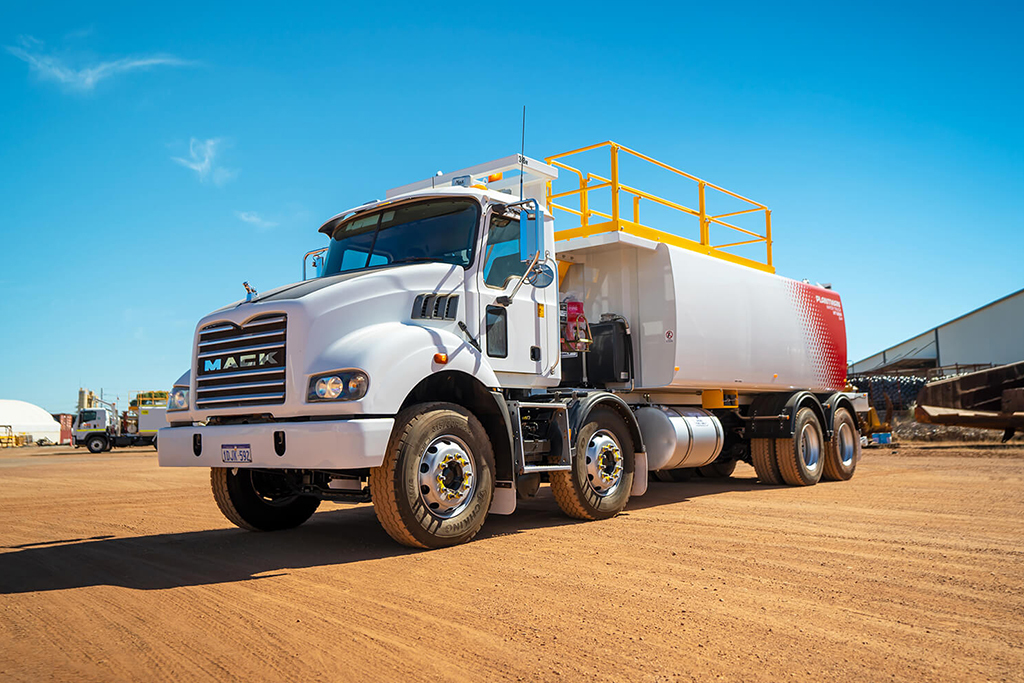
Water Savings & Cost
Maximising water efficiency in water trucks can have a significant impact on a company's bottom line. For example, a construction company that uses water trucks for construction or mining can save up to 60% on their water bills by implementing water-saving practices. These practices can include using equipment with low-flow nozzles and sensors to monitor water usage.
By regularly inspecting and repairing the equipment, the company can avoid expensive repairs or replacements that can add up over time. This can also improve the efficiency of the equipment, resulting in less water wastage and lower water bills. All-in-all, maximising water efficiency in water trucks can help companies to save money on their water bills, reduce maintenance costs, and remain competitive in their respective industries.
Safe Work Environment
Water trucks play a crucial role in the construction and mining industry, where water is essential for dust suppression and soil compaction. Water trucks deliver water directly to construction and mining sites, reducing dust levels and improving air quality. This not only benefits workers' health but also improves the quality of life for nearby communities.
Moreover, water trucks are also used for soil compaction, which is essential for constructing stable and durable structures. Water is sprayed onto the soil, and the weight of the water truck compresses the soil particles, creating a stable base for construction. This method of soil compaction is more efficient than manual compaction, saving time and reducing labour costs.
Environmental Sustainability
Water is a precious resource we must use responsibly. Maximising water efficiency will reduce your environmental impact and contribute to a more sustainable future. By minimising water wastage, water efficiency contributes to the preservation of the planet's most precious resource. Conserving water helps protect aquatic ecosystems, maintain biodiversity, and combat the effects of climate change.
Water trucks are also commonly used in the firefighting industry to combat wildfires. During a wildfire, water trucks can transport large volumes of water to the fire line quickly, allowing firefighters to contain and extinguish the fire more efficiently. In addition, water trucks can also be used for wetting down areas around the fire to prevent the spread of flames and reduce the risk of re-ignition.
Increased Productivity
Maximising water efficiency increases productivity as tasks can be completed more efficiently and in less time. With the help of efficient water usage, water trucks can complete tasks such as soil compaction, irrigation, and fire control in a more timely and effective manner. By using water trucks that are equipped with low-flow nozzles, companies can deliver water more efficiently to the areas that need it most, such as dusty roads or crops in need of irrigation. This results in less water wastage and faster completion of tasks, which can lead to increased productivity.
Water trucks are also used in the oil and gas industry to provide water for hydraulic fracturing or "fracking." Water trucks transport large volumes of water to the fracking site, where the water is mixed with sand and chemicals and injected into the rock to release natural gas or oil. This process requires a significant amount of water, and water trucks provide a cost-effective and efficient solution for transporting water to the fracking site. This, in turn, can help the company to meet its production targets and reduce downtime caused by dusty conditions.
Compliance With Regulations
Governments and regulatory bodies around the world are imposing stricter regulations on water usage, and businesses that fail to comply may face hefty fines and penalties. Many countries and regions have regulations in place to limit water usage and promote water conservation. By complying with these regulations, businesses can avoid fines and penalties and demonstrate their commitment to environmental sustainability. For example, a company that uses water trucks for construction or even when mining can comply with regulations by adopting water-efficient practices, such as using low-flow nozzles and monitoring water usage.
Moreover, compliance with regulations can also lead to new business opportunities for water truck operators. For instance, a construction company that prioritises water efficiency and compliance with regulations can differentiate itself from competitors and attract new clients who prioritise environmental sustainability. As more businesses and industries look for ways to reduce their environmental impact, water truck operators who prioritise water efficiency and sustainability can capitalise on these opportunities and grow their businesses.
Reputation Building
Companies that adopt water-efficient practices in their operations demonstrate their commitment to environmental sustainability, which can help build a positive reputation with customers, stakeholders, and the public. By maximising water efficiency in water trucks, businesses can improve their brand image and differentiate themselves from competitors.
This can be particularly important in industries that are under scrutiny for their environmental impacts, such as mining and construction. By showing a dedication to sustainable practices, companies can build trust with communities and regulators, potentially leading to more opportunities for growth and partnerships. Moreover, a positive reputation for sustainability can also attract socially responsible investors, further strengthening a company's financial standing.
Efficient Watering In Agriculture
Water trucks play a vital role in the agriculture industry, where water is an essential resource for crop growth. Water trucks are used for irrigation, which is crucial for ensuring that crops receive an adequate water supply. Traditional irrigation methods, such as flood irrigation, can lead to water wastage due to runoff and evaporation. In contrast, water trucks provide a more efficient way of watering crops by delivering water directly to the roots. This method reduces water wastage and increases crop yields, resulting in a more sustainable and profitable operation for farmers.
For example, a farmer who uses a water truck for irrigation can control the amount of water delivered to each crop, ensuring that they receive the optimal amount of water needed for growth. This precision helps prevent water wastage and reduces the amount of water needed for irrigation, resulting in cost savings on water bills. Additionally, since water trucks can reach areas that may not have access to a water source, such as remote fields or steep slopes, they offer a versatile solution for farmers. Therefore, by using water trucks for irrigation, farmers can maximise water efficiency and contribute to a more sustainable future for the agriculture industry.
Now that we have discussed the benefits of maximising water efficiency in water trucks, let's move on to some practical tips for achieving this goal. By following these tips, businesses can reduce their environmental impact, save money, increase productivity, and build a positive reputation. With careful planning and attention to detail, water trucks can be a valuable tool for efficient and sustainable water usage in a variety of industries.
Tips To Maximise Water Efficiency In Your Water Truck
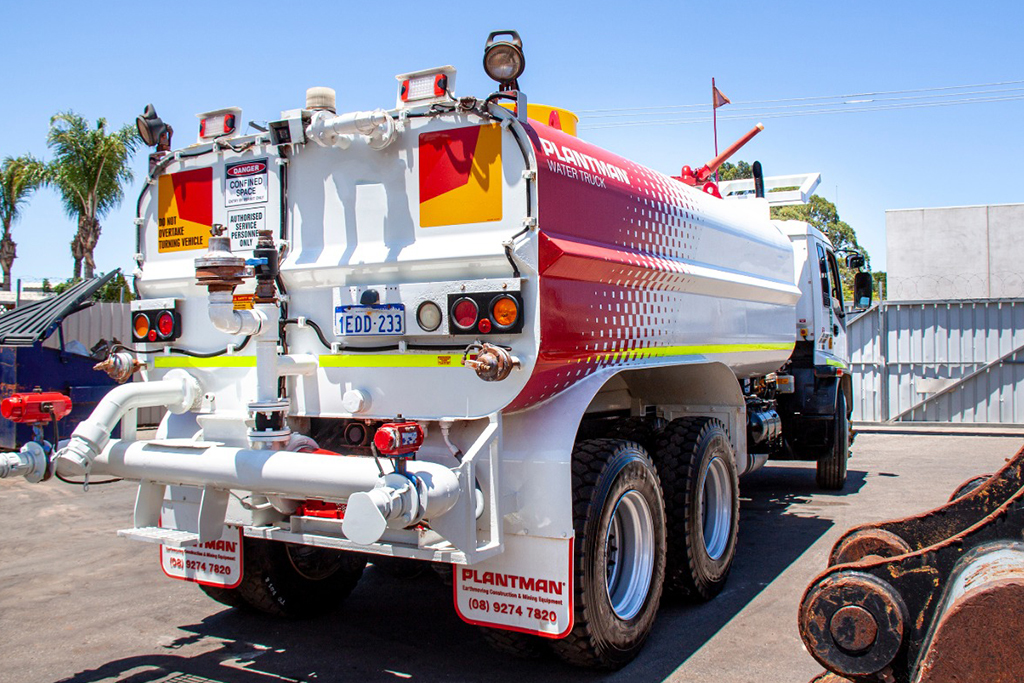
Use The Right Equipment
Choose a water truck with a tank that matches your needs. For example, if you only need to transport small amounts of water, a smaller tank water truck like the Isuzu FVZ1400 6x4 will be more efficient. Also, consider using water pumps with a high flow rate and low pressure. High-pressure pumps use more water and can be less efficient. Additionally, using spray nozzles that produce fine mist rather than large droplets can help reduce water usage. Consider using high-quality pumps, spray nozzles, and valves that are designed to minimise water wastage.
Maintain Your Equipment
Regularly inspect and maintain your water truck's engine, water pump, and hoses. Check for leaks, cracks, and other signs of wear and tear. Replace any damaged or worn-out parts immediately to prevent water wastage and increase efficiency. Another tip is to properly store and secure it when not in use. This can help prevent damage and extend the lifespan of your water truck, ultimately leading to better water efficiency and cost savings.
Remember, maintaining your equipment is an ongoing process, and it's essential to stay vigilant and address any issues promptly to ensure optimal water efficiency in your water truck.
Plan Your Routes Carefully
Proper planning of your route can help reduce the distance travelled and the time spent on the road, minimising fuel usage and water wastage. Use GPS technology and mapping tools to identify the most efficient route to your destination. Plan your routes to minimise travel time and distance, and avoid rough or uneven terrain, which can cause water to slosh around in the tank, leading to spillage and loss. Also, consider scheduling your deliveries during off-peak traffic hours to avoid traffic congestion and save time and fuel.
Reduce Idling Time
This can be done by turning off the water pump and engine when not in use, thereby saving fuel and reducing water wastage. By reducing idle times, you can also prevent evaporation and leakage, which can help conserve water and increase productivity. This act of reducing idle times can minimise the amount of water lost to evaporation and ensure that more water is available for use. It can also help to prevent leakage, which can conserve water and reduce the risk of damage to the equipment.
Train Your Staff
Training staff on the proper use of water trucks can lead to better water efficiency. For example, in a landscaping company, staff can be trained to use the appropriate nozzle and water pressure for the task at hand. They can also be taught to identify leaks and report them promptly. By doing so, they can reduce water wastage and save costs on water bills.
Moreover, providing incentives for staff who practice water-saving behaviours can also motivate them to contribute to water efficiency. For instance, a company can offer bonuses or recognition for staff who report leaks, reuse water, or implement other water-saving practices. This can create a culture of water efficiency within the organisation and further encourage staff to contribute to the conservation of this valuable resource.
Monitor Water Usage
Monitoring water usage can help you identify areas where you can improve efficiency. Install water metres on your water truck to track water usage and identify any sudden increases or decreases. This can help you detect leaks, detect areas where you may be using more water than necessary, and adjust your operations accordingly. Regular monitoring of water usage can help identify inefficiencies and areas where water wastage can be reduced. Keep track of your water usage through regular inspections, and use data to identify opportunities for improvement.
Properly Manage Water Storage
Monitor water levels in your tank regularly and refill as necessary to avoid running out of water during a task. Store your water truck in a cool, shaded area to reduce evaporation and keep the water cool. Also, ensure that the water tank is sealed properly to prevent contamination and evaporation.
Rules & Regulations
As a water truck operator, it's important to comply with local rules and regulations related to water usage and disposal. These regulations can vary depending on your location and may include restrictions on water usage during droughts or other water shortages, as well as guidelines on how to properly dispose of wastewater.
In Australia, water regulations and guidelines vary by state and territory. For example, in New South Wales, water restrictions may be enforced during drought periods, limiting outdoor water usage to certain days and times. In Victoria, commercial water users are required to report their water usage annually and can face penalties for non-compliance.
Water truck operators in Australia should familiarise themselves with the relevant regulations and guidelines for their area and ensure they are complying with them. This can include measures such as using water-efficient equipment, monitoring water usage, and reporting any leaks or issues promptly. By following regulations and guidelines, water truck operators can help ensure the responsible use of water and avoid fines and penalties.
Adopt Water-saving Practices
Simple water-saving practices, such as turning off the pump when it's not in use, can also help conserve water and reduce wastage. Reusing water, fixing leaks, and using water-efficient technologies are other practices that can save water. Adopting water-saving practices can help reduce water usage and increase efficiency.
Water trucks can also be used to control water runoff and erosion on construction and mining sites. By using specialised nozzles and spray patterns, water trucks can distribute water evenly and efficiently, preventing erosion and sediment from contaminating nearby water sources. Water-saving technologies such as water recycling systems and rainwater harvesting systems can also help save water. By implementing these water-saving practices, individuals and businesses can contribute to sustainable water management and protect this vital resource for future generations.
Save Water & Costs With Plantman
In conclusion, maximising water efficiency in your water truck is crucial for environmental sustainability, cost savings, and increased productivity. By implementing the tips outlined in this article, such as maintaining equipment, reducing idling time, adopting water-saving practices, and complying with regulations, you can achieve water efficiency and save costs. Moreover, you can build a positive reputation and contribute to a more sustainable future.
We encourage you to start implementing these water efficiency strategies in your water truck operations today. Remember that every drop of water counts, and by implementing these practices, you can make a positive impact on the environment and the world around us. Let's all do our part in preserving this precious resource for future generations.
Plantman offers reliable and efficient water truck rental services to meet all sorts of unique project needs. Our well-maintained fleet of water trucks, equipped with the latest technology, can handle tough jobs in various industries, including mining, construction, and agriculture.
Call 08 9274 7820 or simply contact us, and our team of trained professionals will guide you through the rental or purchase procedures, discuss delivery options, and even help you choose the equipment type and services you require.
BROWSE RELATED PRODUCTS!
BROWSE NOW07 Apr, 2023
Buying Or Renting A Water Truck: Considerations & Mistakes To Avoid
Water Trucks


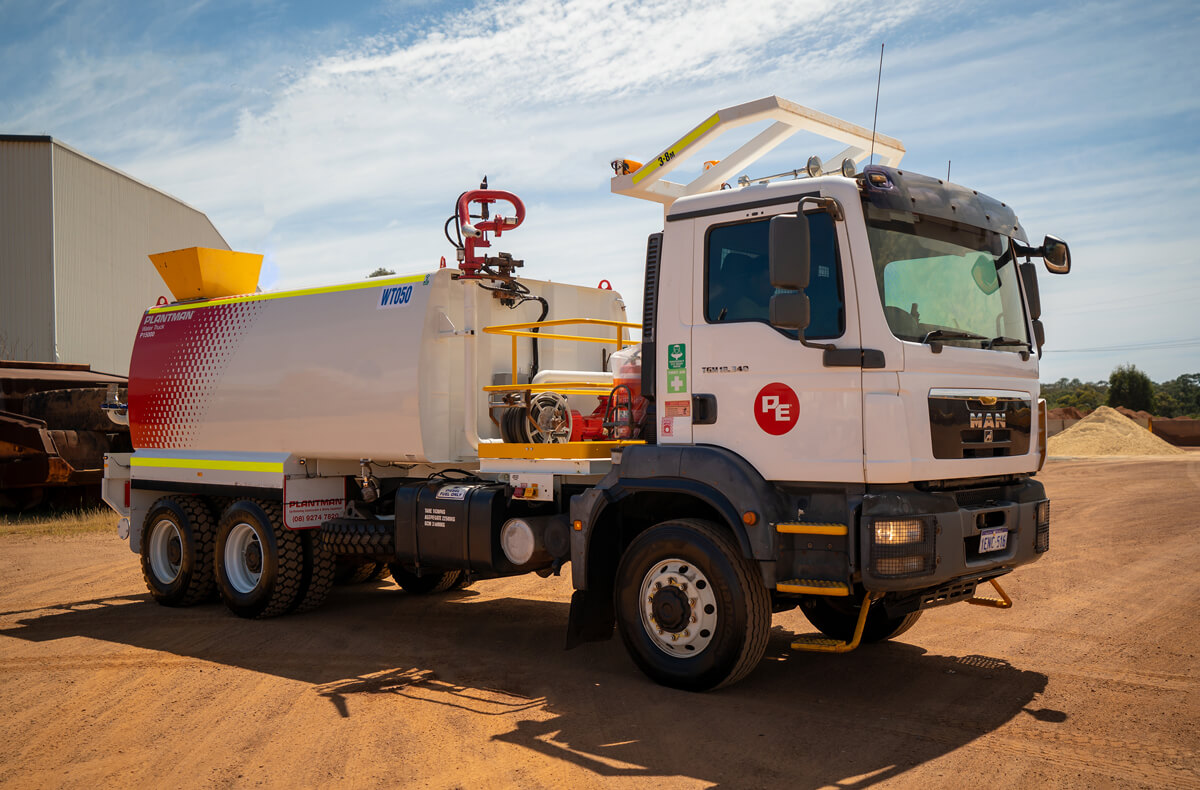
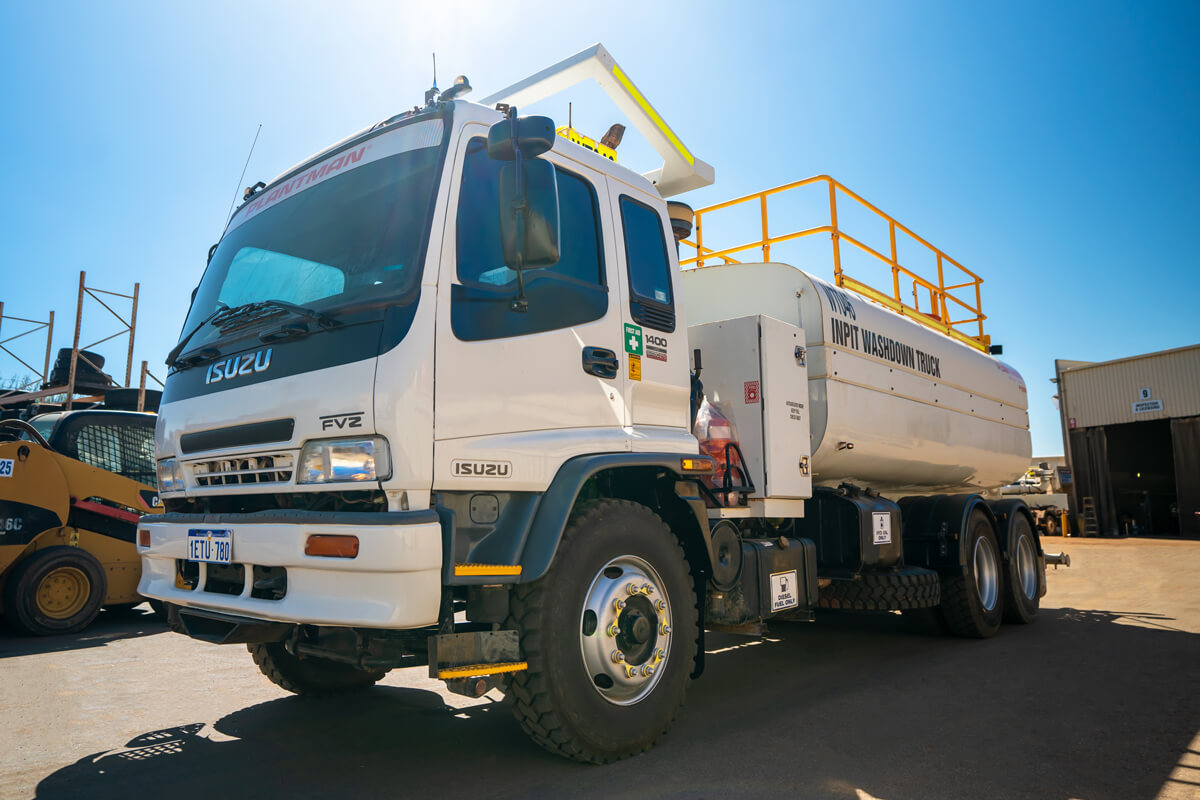
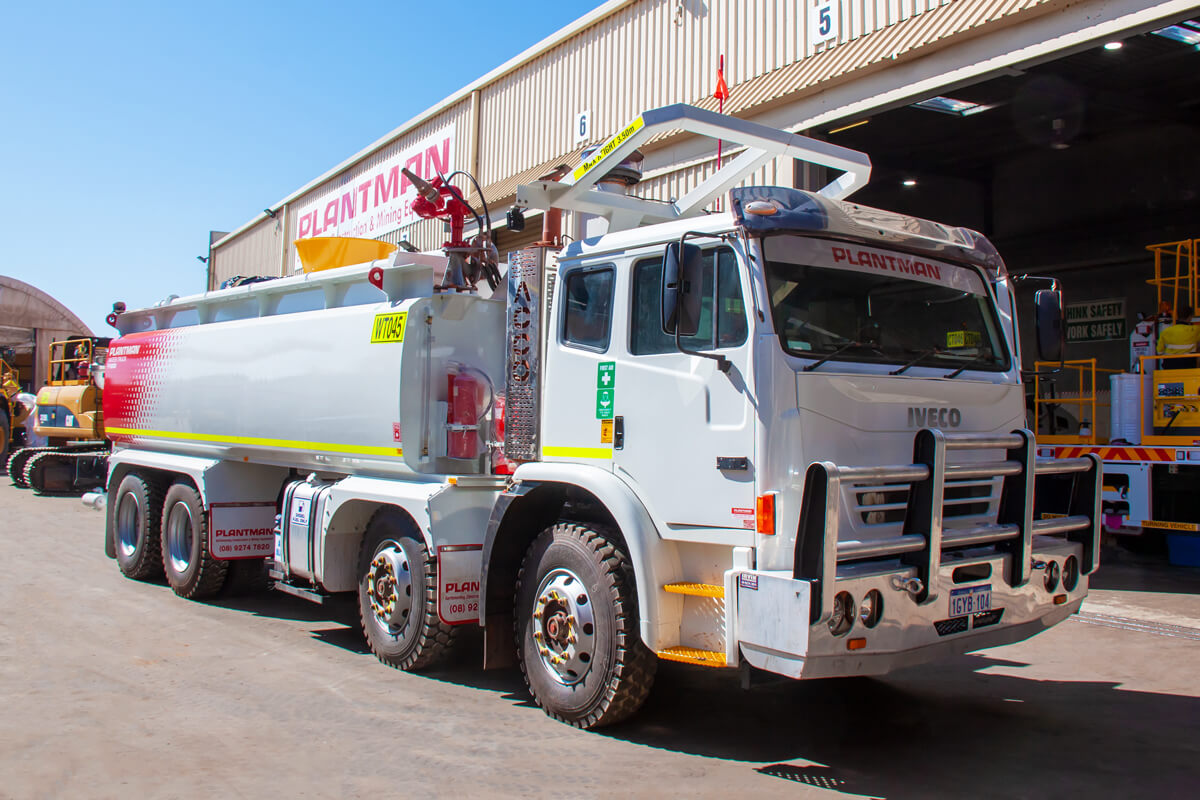
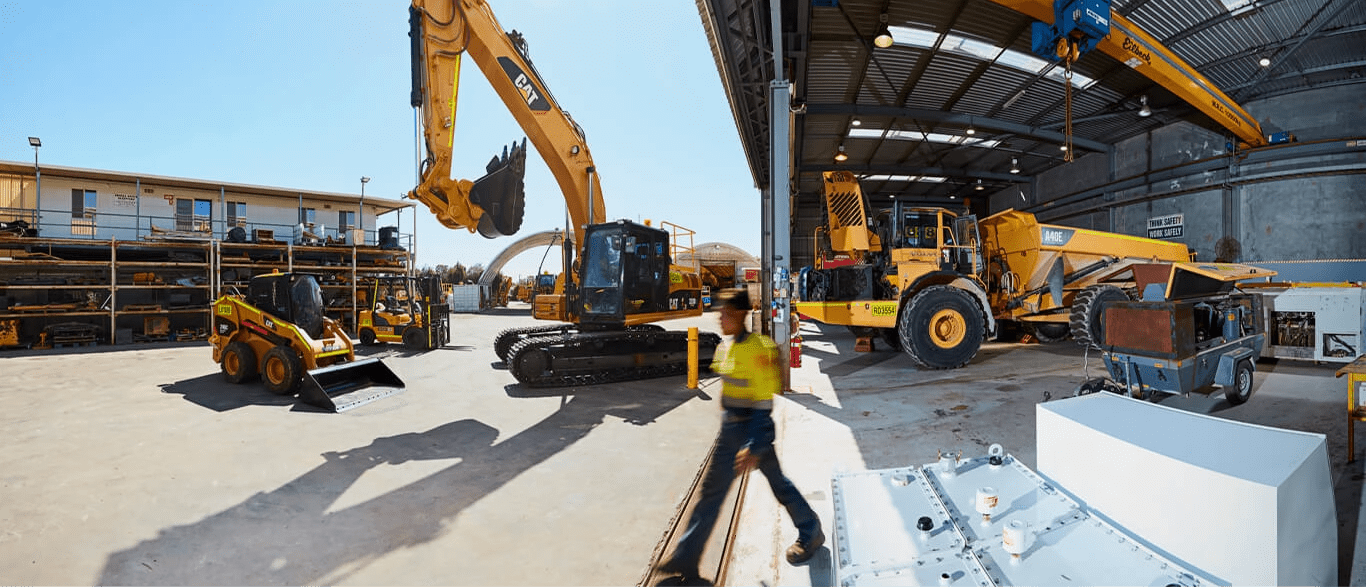

Now that I’ve found Plantman and they’re local which is a bonus, I won’t need to look elsewhere. They also have an extensive range of equipment that suits our requirements for servicing the mining industry. I have no hesitation in recommending Plantman to any of our clients. Well Done!!!